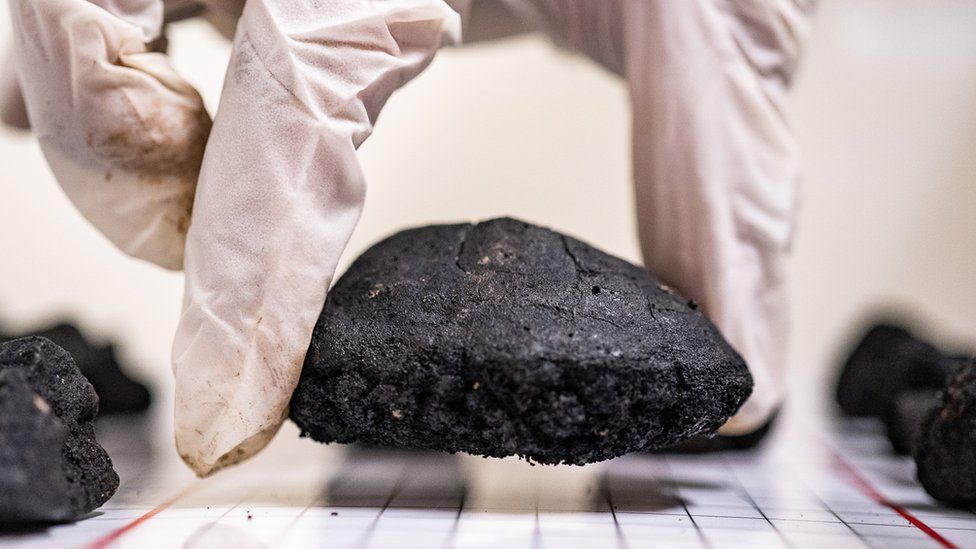-

-
-
Loading

Loading

Gerard Barron, the founder of The Metals Company, argues that their deep-sea mining method has minimal environmental impact. The company uses remote-controlled machines resembling trucks to collect rocks from the ocean floor. These rocks are then crushed and processed to extract minerals such as cobalt, nickel, copper, and manganese, which are in high demand for battery production. The Canadian company is currently conducting tests and hopes to obtain authorization for commercial mining in international waters in the north Pacific by late 2025. However, commercial extraction in international waters is currently prohibited by the International Seabed Authority (ISA), the UN body responsible for regulating the seafloor. The ISA and its member states will convene later this year to establish rules that may allow deep-sea mining to commence, with a final vote expected within two years. Several countries, including the UK, Brazil, Canada, France, and Germany, advocate maintaining the ban due to environmental concerns. Conversely, China and other nations are eager for large-scale deep-sea mining to be approved. Norway recently made headlines as it became the first country to permit future deep-sea mining within its territorial waters, with the US exploring the possibility of doing the same. President Biden has instructed the Pentagon to submit a report on this matter by 1 March. In December, 31 members of Congress wrote an open letter emphasizing the need to strengthen the US's supply chains for rare earth and critical minerals. While The Metals Company focuses on collecting rocks (known as "polymetallic nodules") without invasive methods, other deep-sea mining techniques involve digging. The World Wide Fund for Nature (WWF) opposes all forms of deep-sea mining, citing significant risks to marine life. Marine biologist Kaja Loenne Fjaertoft, a senior advisor for sustainable oceans at the WWF, warns that deep-sea mining could wipe out entire species and ecosystems, in addition to causing disturbances through light, noise, and sediment pollution. The European Academies Science Advisory Council (EASAC) also expresses concerns about the environmental consequences of deep-sea mining. Professor Michael Norton, the EASAC's environment director, highlights the physical disruption caused by the mining process, which could eliminate marine life and potentially affect neighboring sea beds and water columns. Prof Norton also questions the necessity of deep-sea mining, stating that it produces an abundance of manganese while cobalt and nickel, commonly used in clean energies like batteries, are not considered a high supply risk by the European Commission. The targeted area for The Metals Company's mining operations is the Clarion-Clipperton Zone, a vast region between Hawaii and Mexico in the north Pacific measuring 4.5 million sq km (1.7 million sq miles). Barron asserts that mining in this area would cause less environmental disruption than land-based mining, citing the impact on rainforests in countries like Indonesia and the Philippines. The WWF argues that reducing demand for new mining sites can be achieved by investing more in the processing of existing mining waste and increasing recycling efforts. Ms Fjaertoft also suggests that emerging technologies in early stages of research could decrease future mineral demand significantly. The ISA now holds the responsibility of making decisions regarding deep-sea mining, but it remains uncertain how they will navigate the issue. The organization did not respond to interview requests. Prof Norton emphasizes the need for strong environmental regulations in deep-sea mining, but acknowledges the ISA's challenge of balancing the risks and needs associated with it.